Kinhtedothi-According to former Deputy Minister of Home Affairs Nguyen Tien Dinh, implementing the Capital Law, Hanoi has been strongly decentralized, this is an important basis for Hanoi to continue to effectively implement the arrangement, streamlining of the organizational apparatus to be efficient and effective, meeting the requirements of tasks in the new development stage.
Recently, General Secretary To Lam emphasized the guiding viewpoint on the urgent need to carry out the revolution in arranging and streamlining the political system's organizational apparatus in the direction of "Refined - Lean - Strong - Effective - Efficient - Effective - Efficient".
Speaking to reporters of the Economic and Urban Newspaper, Dr. Nguyen Tien Dinh - former Deputy Minister of the Ministry of Home Affairs said that this is a very difficult and complicated revolution, requiring drastic, synchronous and comprehensive measures, even if it affects the interests of individuals and organizations.
Execute top-to-bottom synchronization, no waiting
According to you, why did the General Secretary make the request for a revolution to organize and streamline the apparatus at this time?
- General Secretary To Lam has just written an article on the need to streamline the apparatus in the political system, ensuring "refined, compact, strong, efficient, effective, and efficient". The Central Executive Committee has just officially adopted a policy of having a revolution in streamlining the apparatus in Vietnam's political system.
We have determined that the country is entering a new period, a period of development and a period of national growth, requiring acceleration and breakthrough to meet development needs and overcome challenges, especially when Vietnam is still at a low-middle income level and is preparing to enter the "golden population" structure, so we must take advantage of this time.
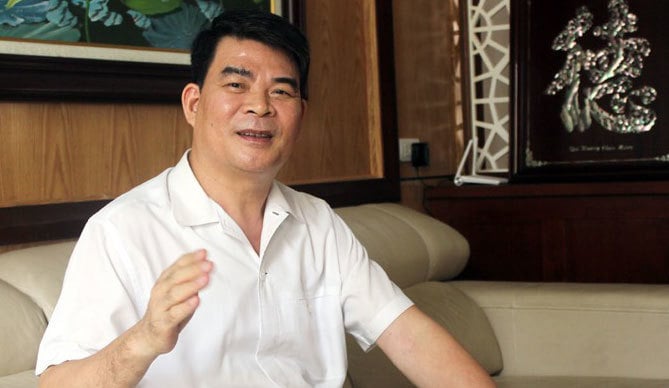
Although Vietnam has achieved many results in reforming the organizational apparatus of the political system, contributing to the country's socio-economic development, the resolutions of the Central Committee have stated that "our country has never had the foundation, potential, position and international prestige as it does today". However, compared to the country's development needs and the Party's goal of "by 2030 being an industrialized country, by 2045 being a high-income developed country", there are still many difficulties.
The Resolution of the 13th Party Congress identified the country's three breakthroughs, which are also three current bottlenecks: infrastructure, institutions, and people. The Party identified institutions as the "bottleneck of bottlenecks", in which the bottleneck of "organizational institutions" is a very big bottleneck, making it very difficult for Vietnam to develop rapidly and accelerate in the coming time.
If a country wants to develop, it must clearly focus on breakthroughs and resolve bottlenecks as stated in the Party Congress Resolution, focusing on bottlenecks in the organization of the apparatus in the political system.
We have gone through many times of streamlining the apparatus. How do you evaluate this streamlining process to be different from previous ones?
- Vietnam has repeatedly reorganized and streamlined its apparatus, especially since the renovation, it has carried out State administrative reform, innovated the Party's leadership, innovated the judiciary..., achieving results as assessed by the General Secretary: currently the organization of the political system is still divided into 3 blocks (Party, State, Fatherland Front and socio-political organizations) which has been relatively stable, meeting the strategy and Constitution.
However, there are also problems arising in the organizational structure of each block, which is that the organizational structure is still cumbersome, with many intermediate levels; especially the division of functions and tasks between organizations and within the system, from the Central to local and grassroots levels..., leading to limited effectiveness and efficiency of the apparatus in the political system.
Administrative costs for the apparatus are also very large (previously accounting for 70%, now it has decreased but still accounts for 64-65% of the regular state budget, most of which is spent on the administrative apparatus), the rest is spent on development investment and debt repayment which is very limited, having to borrow, thus limiting the efficiency, effectiveness and operational efficiency of the apparatus.
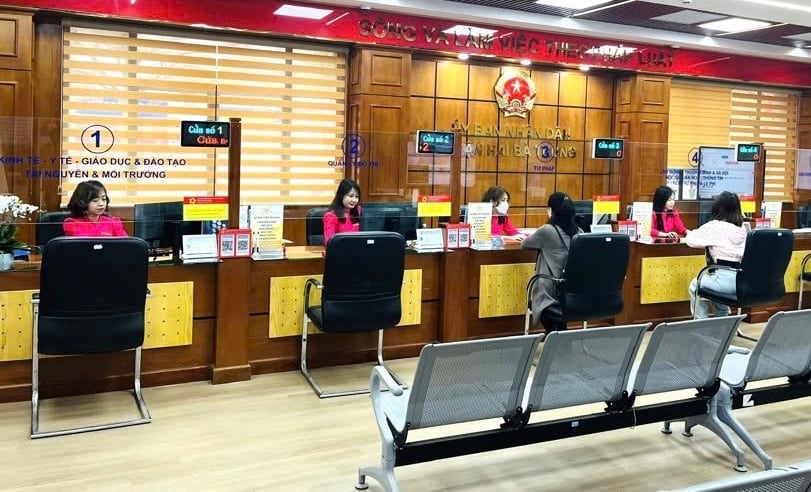
Therefore, with the requirement of moving to a new era - the era of national development, to achieve the target of an average growth rate of 7%/year from now until 2045 and improve labor productivity, it is clear that Vietnam must carry out a "revolution" and not just "innovation" or "reform". That is, at a higher level, doing it resolutely, thoroughly, and determinedly.
This leads to many problems, from the political determination of the entire Party to the solutions of the entire system, the awareness of all cadres, party members and people.
This is a very difficult and complicated revolutionary work that must be done resolutely, synchronously, and comprehensively from top to bottom, even if it affects each individual, cadre, party member, and the people; it affects the interests of individuals and organizations - as the General Secretary said, "we must know how to sacrifice for the common good", not for personal interests (political or economic interests).
Looking back at the post-renovation period, the previous process of restructuring the apparatus was sometimes confusing, deferential and evasive, which led to a situation where a Ministry managed multiple sectors at the top but separated departments at the bottom. Or some Ministries were able to streamline internally (eliminating the General Department, Department, and Division within the Department), but many Ministries were not thorough, there were still "Ministries within the Ministry" (General Departments within the Ministry); there were sectors with relatively overlapping functions and tasks that had not been thoroughly resolved; there were tasks that should have been assigned to localities but were still kept by the Central Government - showing that decentralization and delegation of power were not effective.
Therefore, this time, the revolution of streamlining the apparatus must be thorough in the political system from the Party, the State, the Fatherland Front and socio-political organizations. In particular, it must be implemented from top to bottom as the General Secretary said: "The Central Committee must set an example", set an example right from the Politburo, the Secretariat, the Central Executive Committee; the province must set an example for the district, the district must set an example for the commune and the grassroots units. The province does not wait for the Central Committee, the district does not wait for the province, and the commune does not wait for the district, but always does it synchronously, simultaneously, resolutely and thoroughly.
The goal is to basically complete the arrangement and streamlining of the apparatus of the political system from now until the first quarter of 2025 to prepare for Party Congresses at all levels leading up to the 14th National Party Congress. Time is very short but the workload is very large, so we must carry out synchronously for all three blocs from top to bottom across the country and not wait, when the schedule for Party Congresses at all levels has been determined according to Directive 35-CT/TW of the Politburo.
That requires political determination, high solidarity as well as unified awareness throughout the Party and the entire people to be able to carry out this revolution well.
Opportunities and luck of the country
In the process of implementing the revolution of organization and streamlining, there will be people who are afraid of affecting their “rice pot” and find reasons not to do it. So, in your opinion, what solutions do we need to overcome those obstacles?
- We have learned lessons from the restructuring of the apparatus, including the Party, the State, the Fatherland Front, and socio-political organizations, although it was not as synchronous and comprehensive as this time. This time, the restructuring requires careful study of projects and plans, and when implemented, it must be accompanied by effective solutions.
During the reorganization process, of course there will be redundant organizations and individuals or those who no longer perform their duties as before, so it is clear that appropriate policies must be in place. Previously, the administrative reform process has streamlined the apparatus and staff, there have been decrees and regulations to implement, and we also have to spend a lot of money to implement those policies.
Drawing on the lessons learned, we will have to continue to streamline and streamline the apparatus. The important issue is to raise awareness and responsibility of all levels, cadres and party members, because this is a common cause and an opportunity for the country - if we do not do it, it will be very difficult to develop and achieve the set goals.
Therefore, since it is a revolution, it must be done thoroughly and resolutely, so it is necessary to raise awareness in parallel with the solutions and policies of the Party and State at the present time. When arranging both human resources and material facilities, there must be policies; at the same time, when implementing strong decentralization and delegation of power, it is also necessary to create conditions for localities, levels and sectors to implement that decentralization and delegation of power.
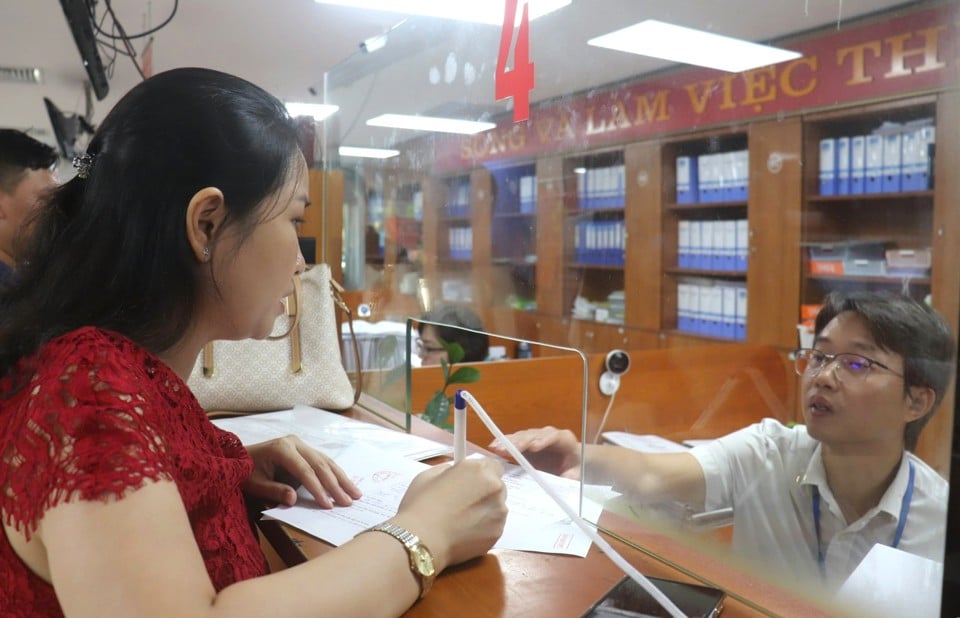
For Hanoi in particular, what do you think are the requirements for implementing this revolution, especially in conjunction with implementing the newly issued Law on the Capital?
- Hanoi is the capital, the political center, where "the Central Committee and the Politburo must do it first", "the local authorities must do it first, and at the same time, as the capital of the whole country, it must be an example". Obviously, according to the resolutions and plans of the Central Committee, Hanoi cannot but implement them.
Recently, the city has rearranged administrative units from villages, residential groups to communes and wards; the inevitable trend is to continue to rearrange. Along with that is the rearrangement of the apparatus in the Party, State, Fatherland Front, and local government organizations according to the plan of the urban government. Hanoi must definitely do it, and must also take the lead.
However, Hanoi has a large number of administrative agencies, Party organizations, the Fatherland Front, and civil servants, so the amount of work to be done is very large, while the implementation time is the same as in other localities, clearly requiring higher political determination.
In particular, I assess that Hanoi's own difficulties are much more complicated, when the team has a period of too much surplus due to the number being higher than other localities; at the same time, according to the newly issued Capital Law, Hanoi is allowed to increase salary income by no more than 0.8 times for civil servants (implemented from January 1, 2025). That is an advantage but also a challenge for the city, because the number of civil servants is large, the structure is very complicated; the city has special policies because it affects interests when streamlining the apparatus.
Furthermore, implementing the Law on the Capital, Hanoi is strongly decentralized, so in streamlining the apparatus, the city needs to selectively build a truly lean but elite team to meet higher requirements in the new development stage.
Besides the determination from the Party Committee and the government, I think the city should have a carefully calculated plan based on the plan of the Central Committee; especially it must be very objective, democratic, and increase propaganda to create consensus. Streamlining the apparatus is according to the above, but streamlining each person in the apparatus is a story that must be carefully calculated.
We must be objective, democratic, and work for the common good in each agency to select people who can do the job. We need to build a truly elite team; lean but strong, because if the team is lean but not elite, and cannot meet the requirements of the decentralized tasks, and is given more power with the position of the Capital, then we will not achieve the goals of this revolution.
Up to now, in carrying out tasks, the responsibility of the leader has always been emphasized, and in this revolution more than ever, the role and responsibility of the leader must be clearly demonstrated. If the leader does not perform well, it is clear that our revolution will be very difficult.
Thank you very much!
Source: https://kinhtedothi.vn/thuc-hien-cuoc-cach-mang-tinh-gon-bo-may-de-dap-ung-yeu-cau-tang-toc-but-pha.html






























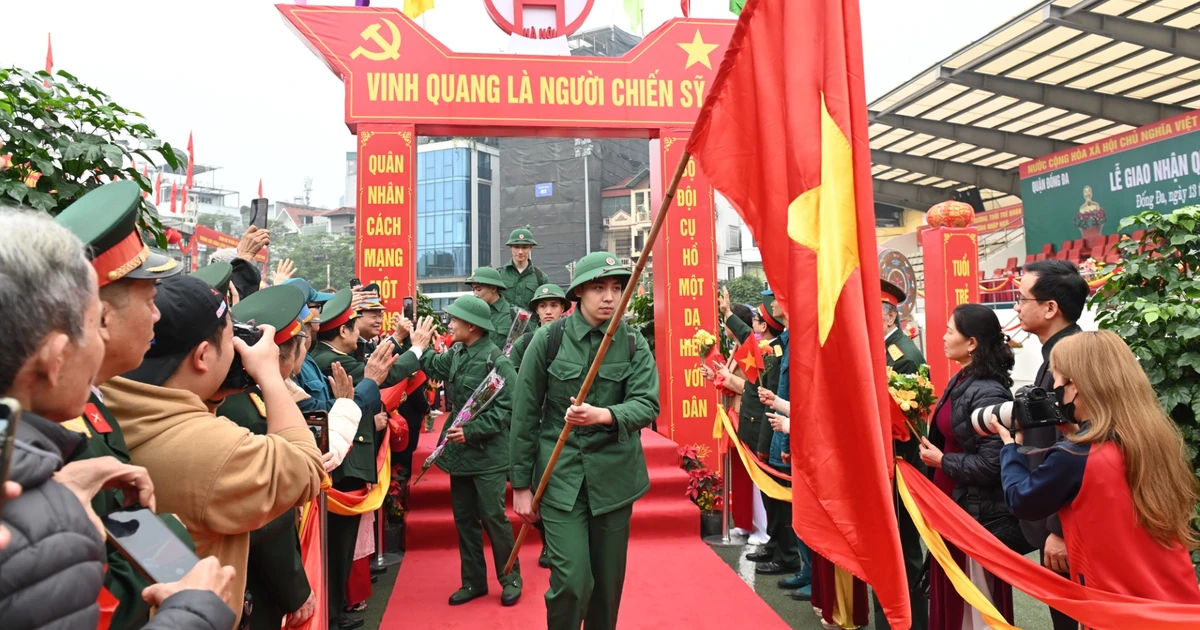

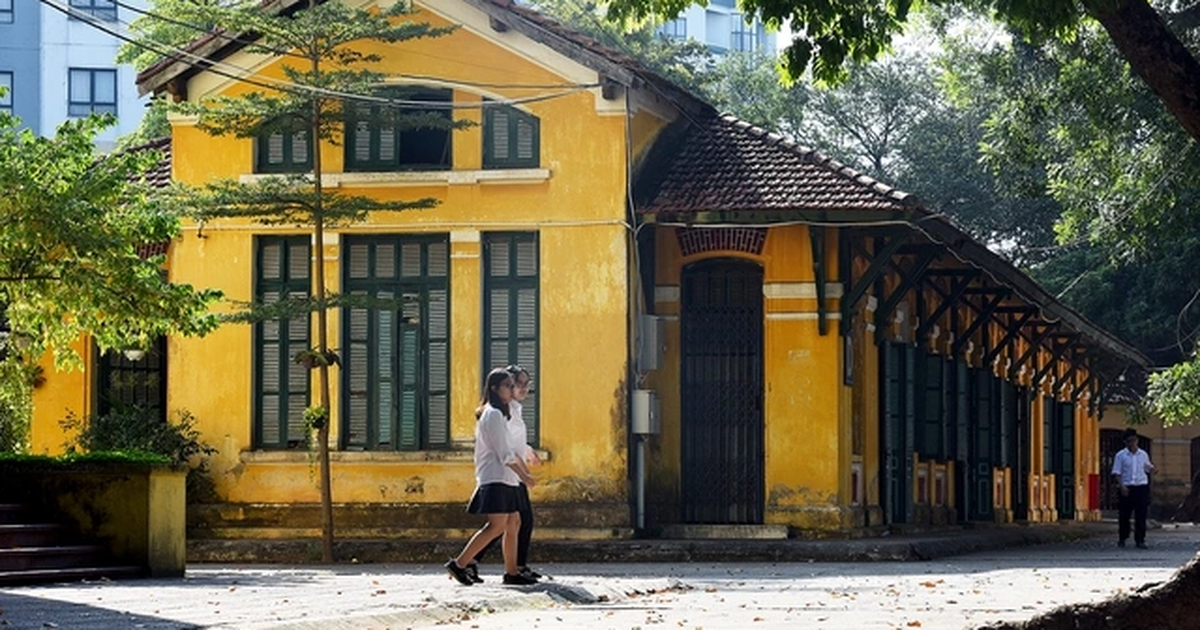

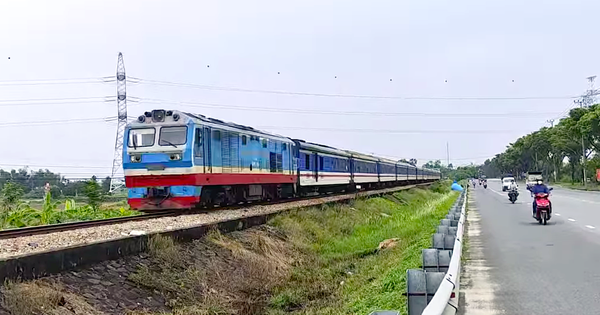

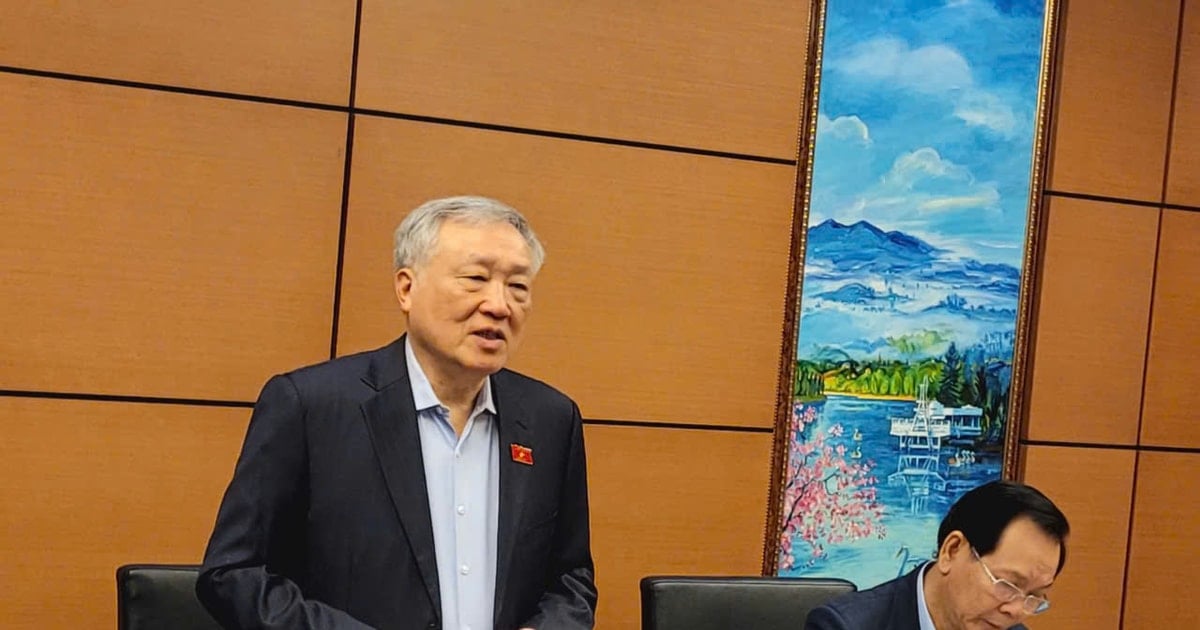

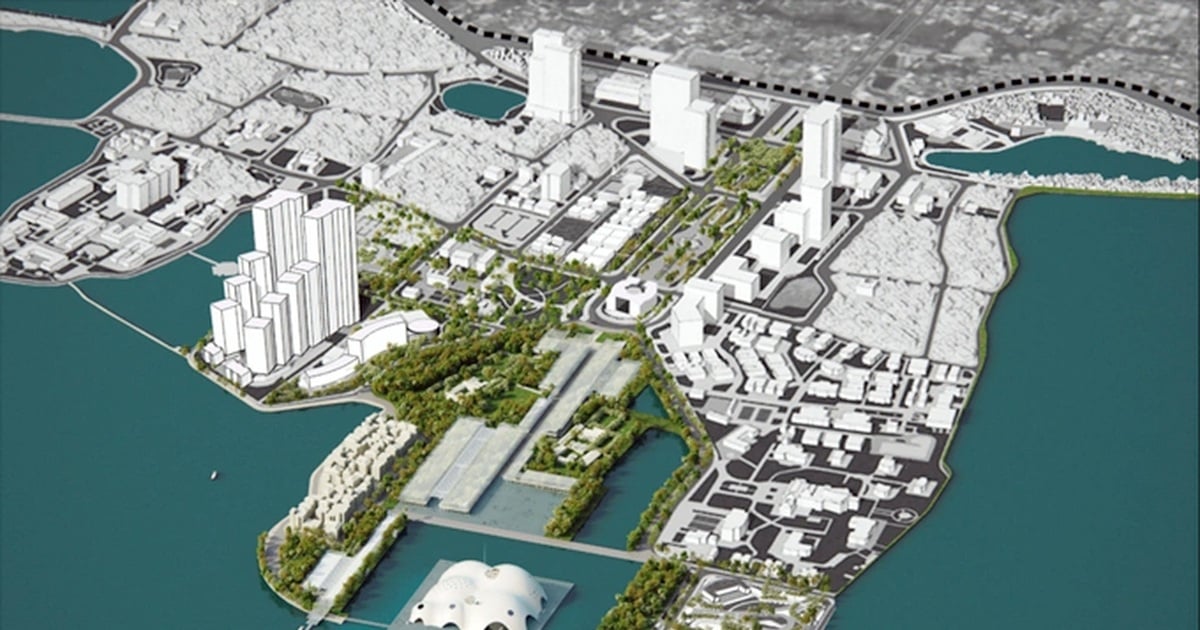

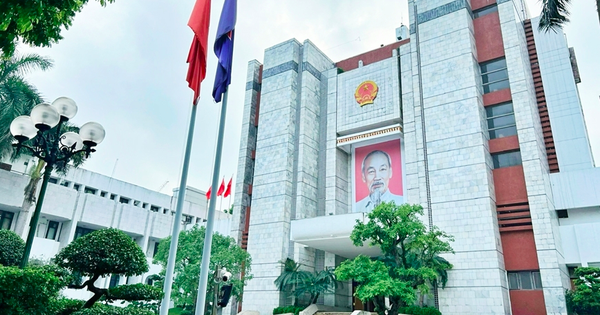

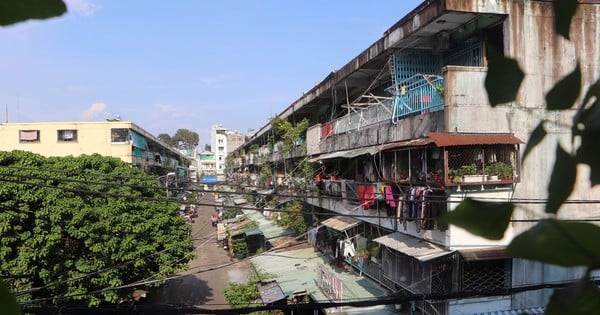
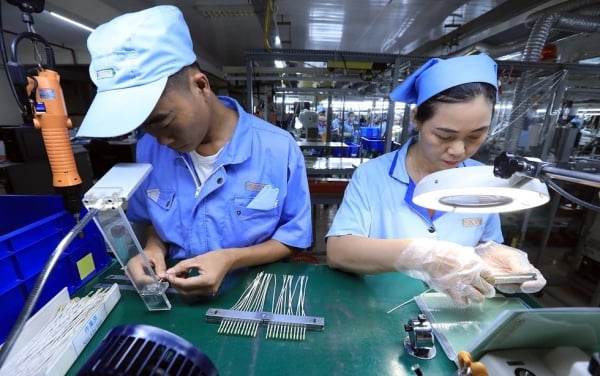



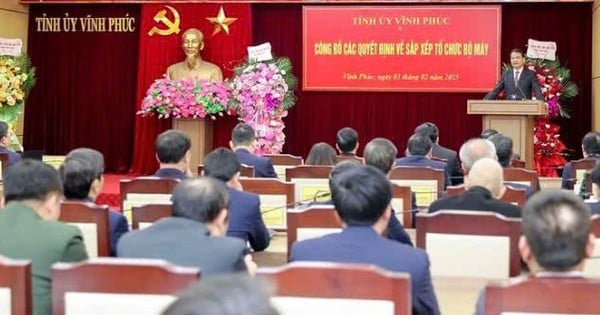
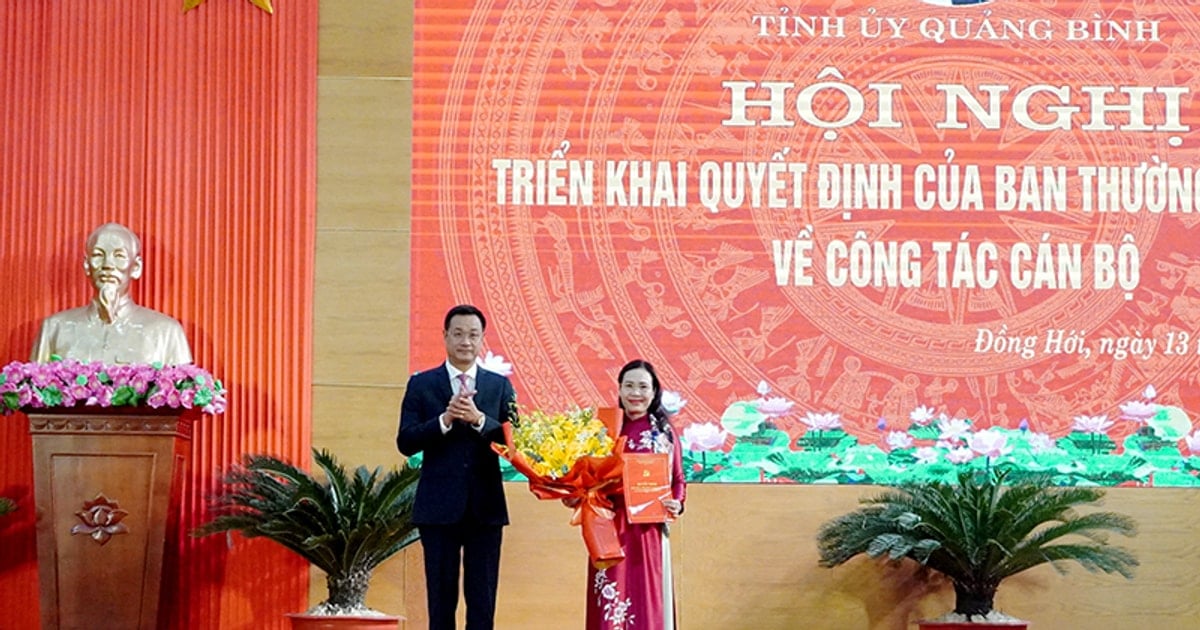

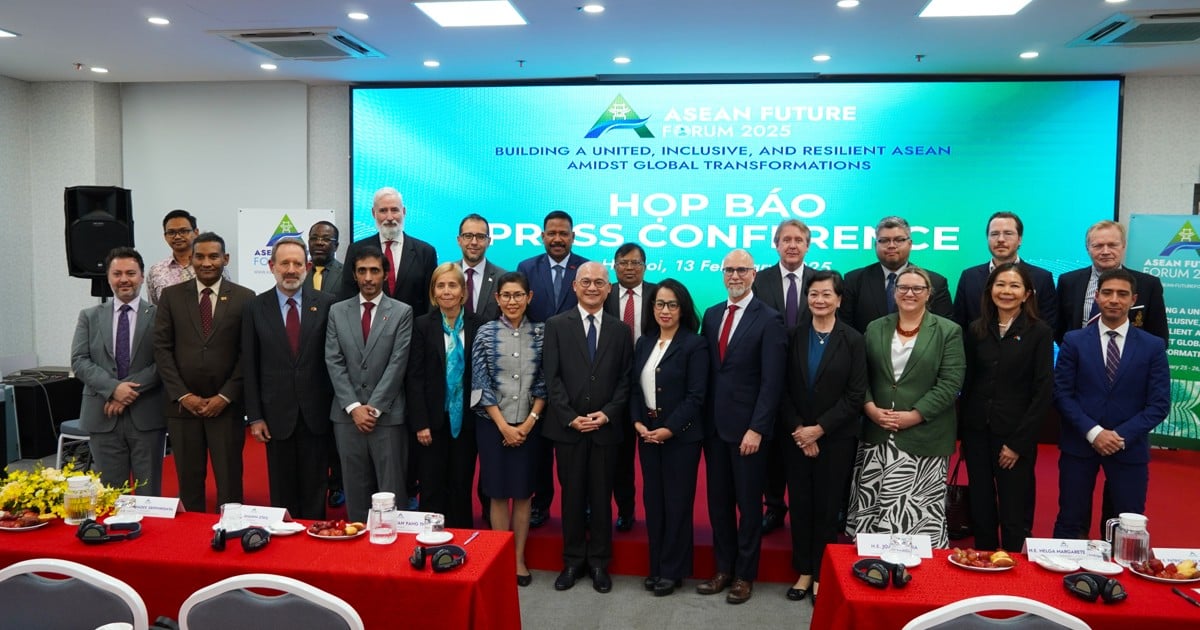
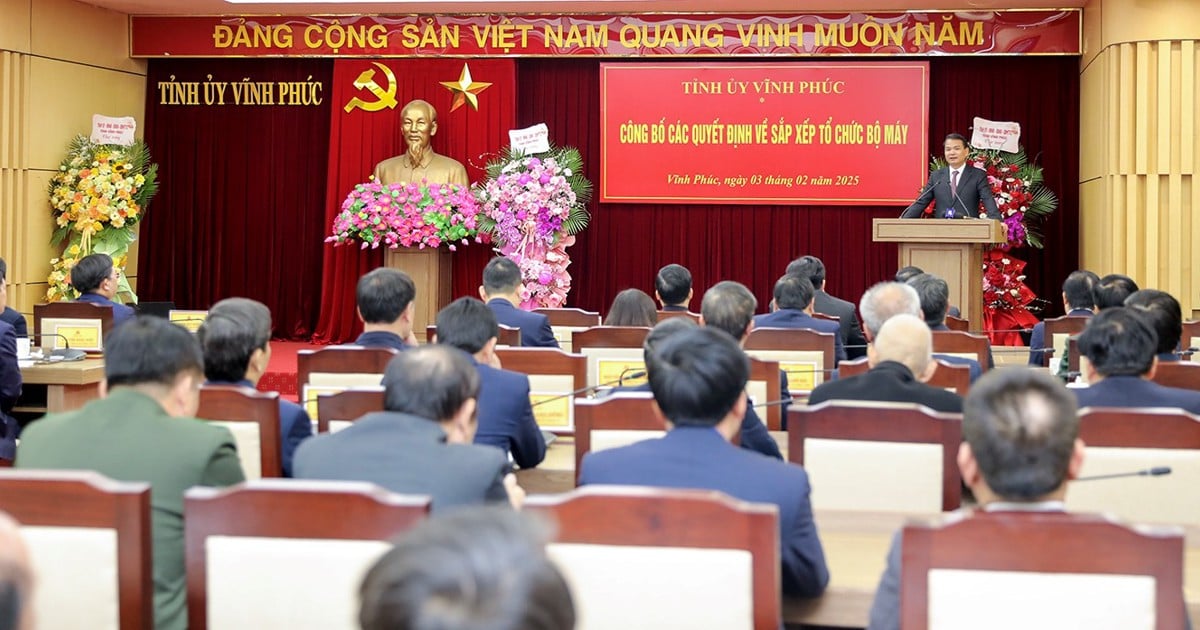
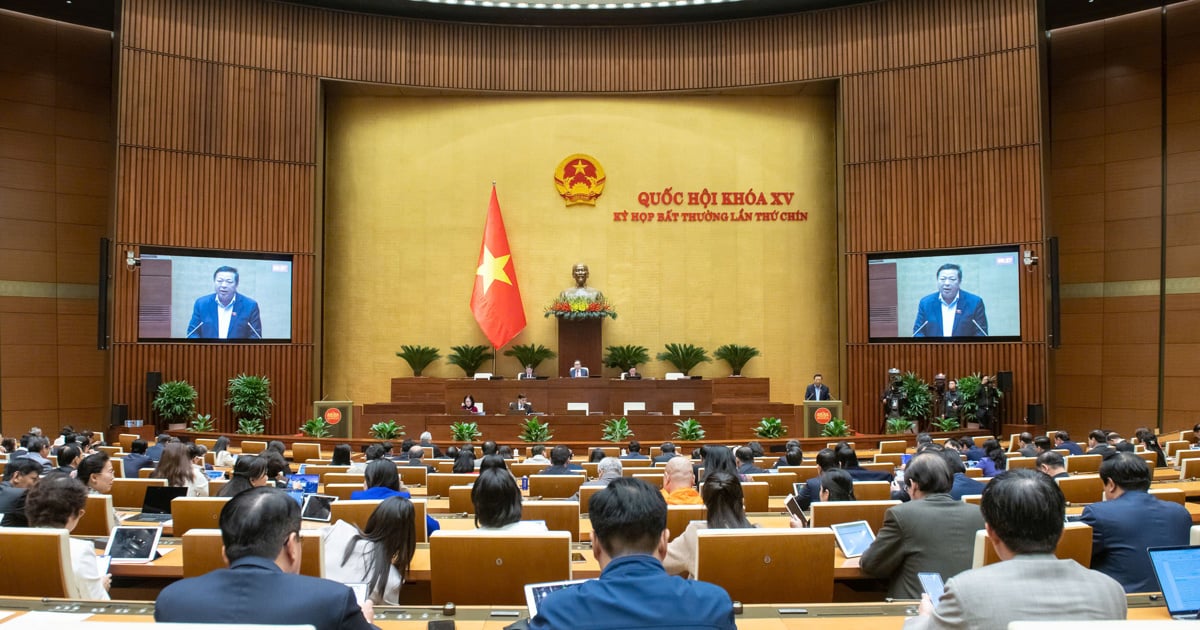
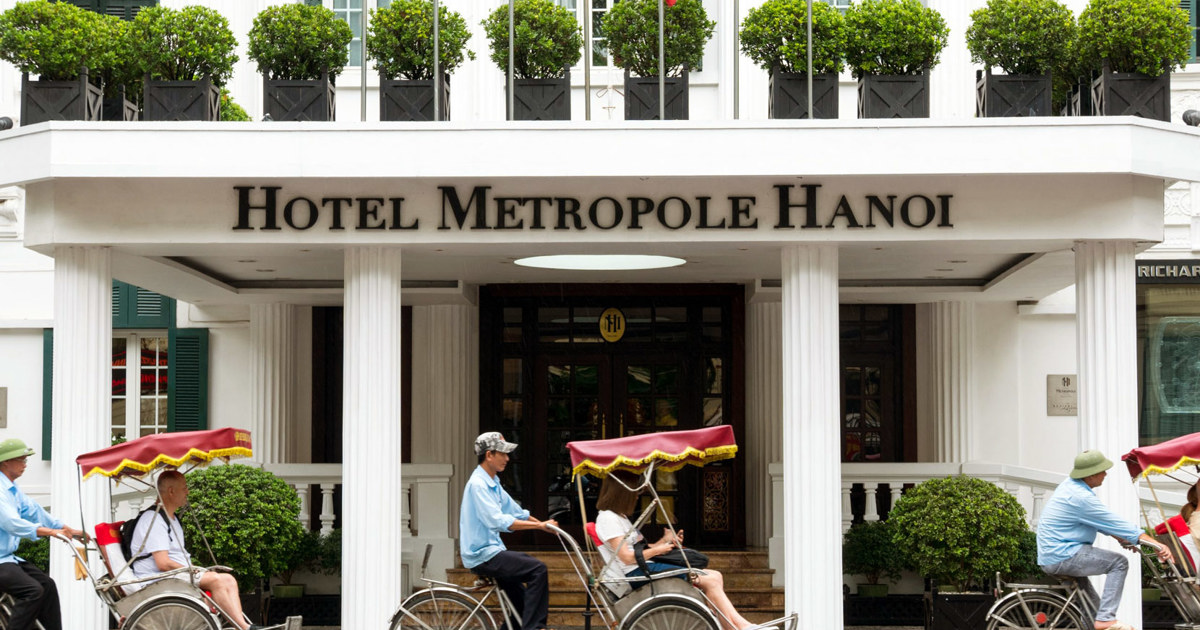
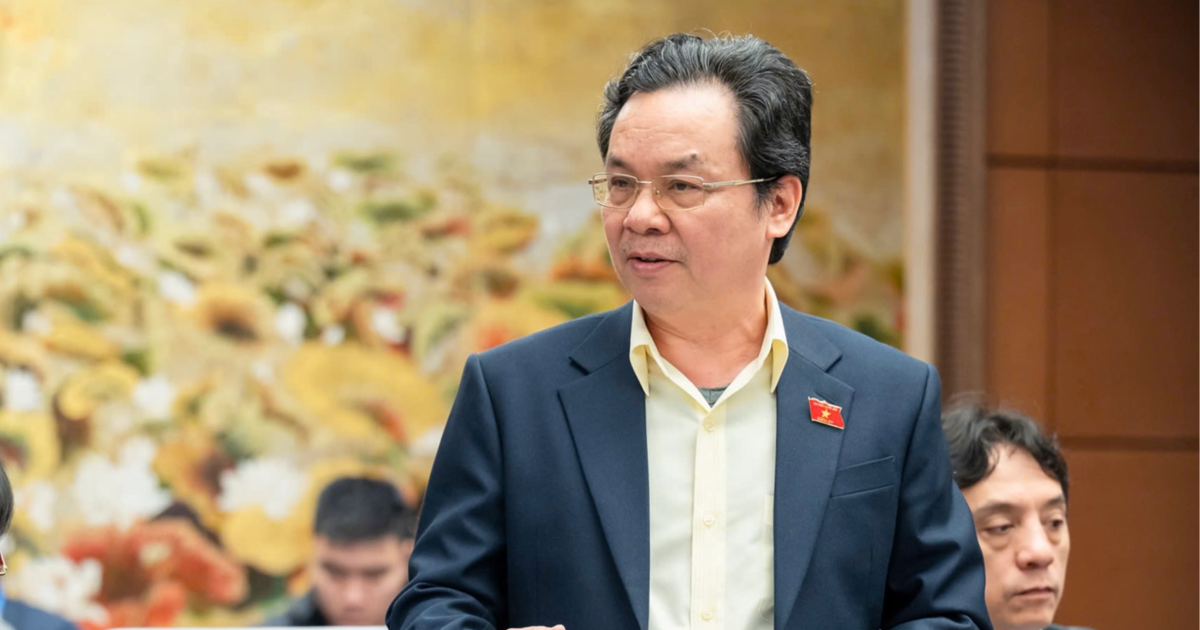
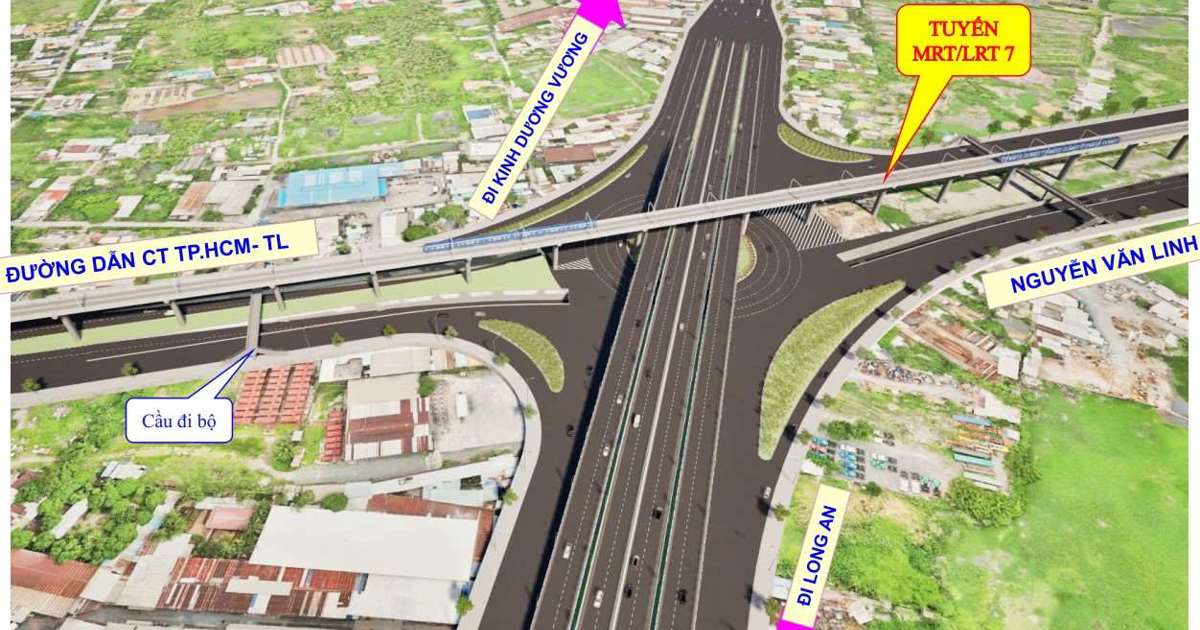













Comment (0)